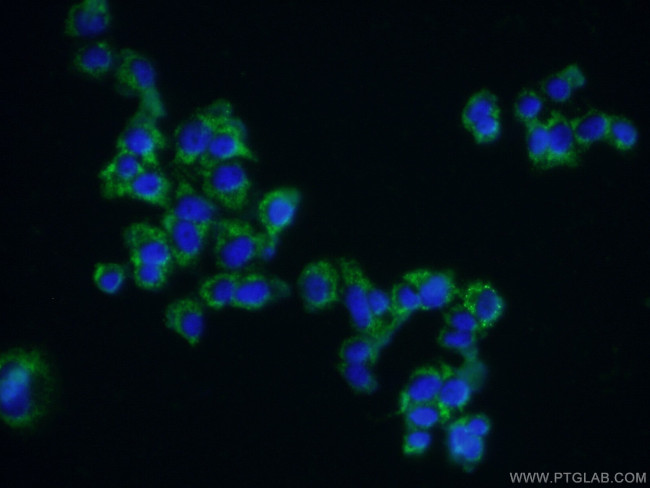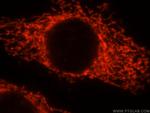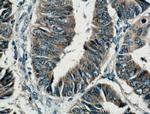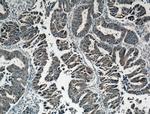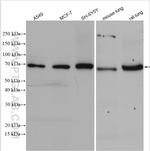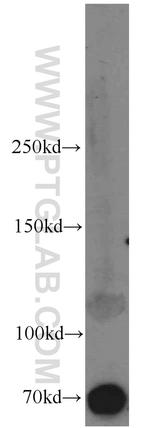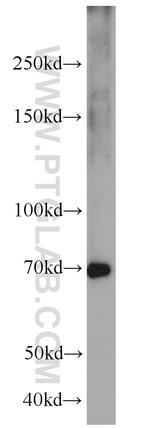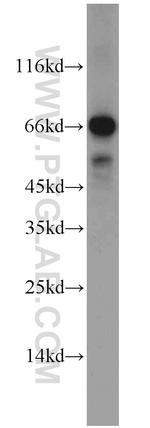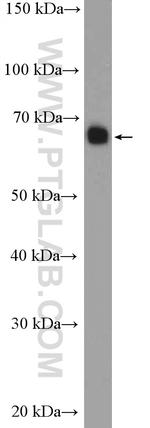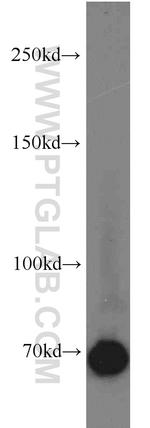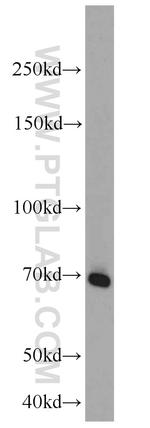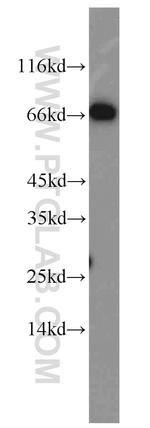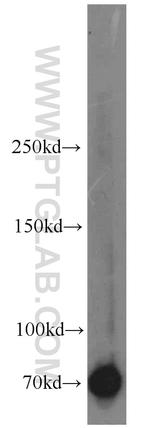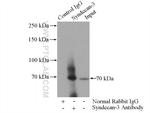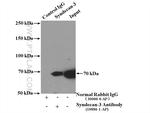Search Thermo Fisher Scientific
Product Details
10886-1-AP
Species Reactivity
Published species
Host/Isotype
Class
Type
Immunogen
Conjugate
Form
Concentration
Purification
Storage buffer
Contains
Storage conditions
Shipping conditions
Product Specific Information
Immunogen sequence: MAIAYLGSS CPSQPPSSLA LSLSPTPSDF EQESGIETAM RFSPDVALAV STTPFEELPS ERPTLEPATS PLVVTEVPEE PSQRATTVST TMATTAATST GDPTVATVPA TVATATPSTP AAPPFTATTA VIRTTGVRRL LPLPLTTVAT ARATTPEAPS PPTTAAVLDT EAPTPRLVST ATSRPRALPR PATTQEPDIP ERSTLPLGTT APGPTEVAQT PTPETFLTTI RDEPEVPVSG GPSGDFELPE EETTQPDTAN EVVAVGGAAA KASSPPGTLP KGARPGPGLL DNAIDSGSSA AQLPQKSILE RKEVLVAVIV GGVVGALFAA FLVTLLIYRM KKKDEGSYTL EEPKQASVTY QKPDKQEEFY A (1-370 aa encoded by BC013974)
Target Information
The protein encoded by this gene belongs to the syndecan proteoglycan family. It may play a role in the organization of cell shape by affecting the actin cytoskeleton, possibly by transferring signals from the cell surface in a sugar-dependent mechanism. Allelic variants of this gene have been associated with obesity.
For Research Use Only. Not for use in diagnostic procedures. Not for resale without express authorization.
Bioinformatics
Protein Aliases: N-syndecan; Neuroglycan; SYND3; syndecan 1; syndecan neural type; syndecan proteoglycan 3; Syndecan-3
Gene Aliases: KIAA0468; mKIAA0468; SDC3; SDCN; syn-3; SYND3
UniProt ID: (Human) O75056, (Rat) P33671, (Mouse) Q64519
Entrez Gene ID: (Human) 9672, (Rat) 116673, (Mouse) 20970

Performance Guarantee
If an Invitrogen™ antibody doesn't perform as described on our website or datasheet,we'll replace the product at no cost to you, or provide you with a credit for a future purchase.*
Learn more
We're here to help
Get expert recommendations for common problems or connect directly with an on staff expert for technical assistance related to applications, equipment and general product use.
Contact tech support
